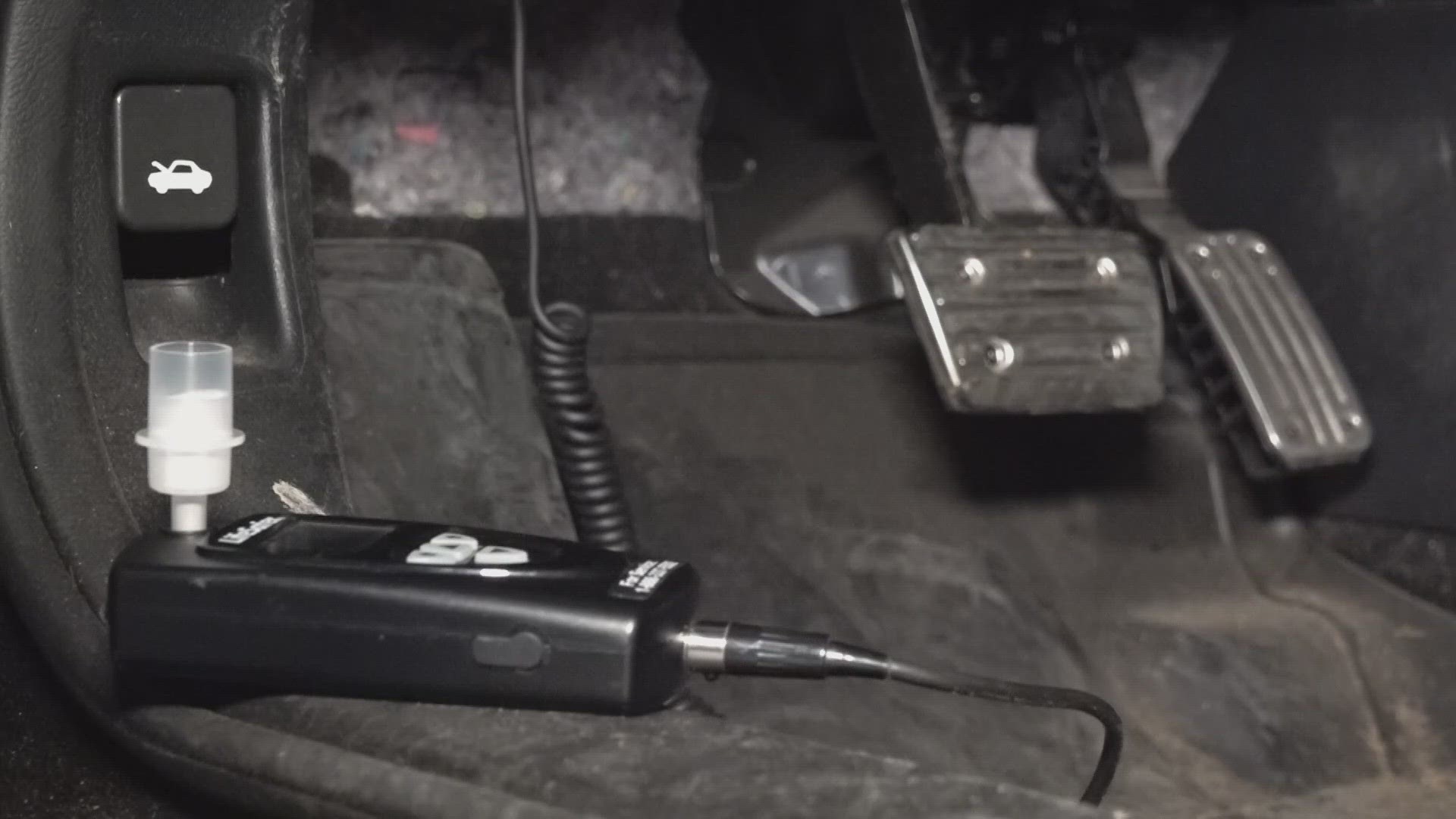KNOXVILLE, Tenn. — A state law that went into effect on Jan. 1 requires ignition interlock devices, otherwise known as car breathalyzers, to have GPS technology. The technology records where a person is when they blow into the breathalyzer, instead of continuously tracking a person's car.
The devices can be installed on a person's car if they were previously convicted of drinking and driving. They require drivers to complete a breathalyzer test before cars can be used, effectively guaranteeing a person is sober before they drive on the road.
"They're already GPS-capable. The feature has been turned off," said Preston Wolfe, who works at National Interlock. "You'll turn your key on to the ignition, and it will power up the device and ask you to blow for five seconds, for about ten seconds."
The device also takes drivers' pictures as they blow into a breathalyzer. Once their pictures are approved and their blood alcohol content is below the legal limit, they can use their cars as normal. The devices can also randomly require a breath test, tag where vehicles are located when they start and track if drivers miss a test.
DUI convicts are required to visit a shop monthly to maintain ignition interlock devices and to pay a $125 monthly fee for the breathalyzer.
"DUI is one of the most serious things that a driver can face behind the wheel," said Greg Mangan, President of Drive 4 Life. "It's great technology, as long as it's used and it's used properly, and there's no way that someone can get around it."
According to state data from 2023, more than 5,000 people drove under the influence in urban centers, and around 1,000 people in rural areas. It also showed people between 20 years old and 34 years old are most likely to drive under the influence.
The Tennessee Highway Patrol plans to conduct Knox County sobriety checks twice in January.

